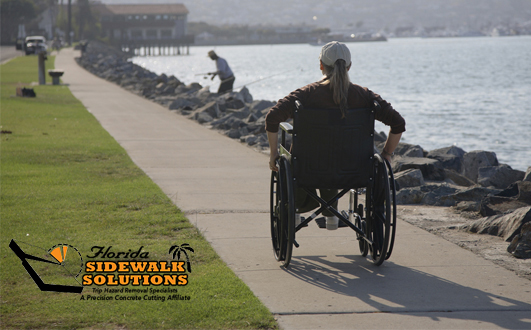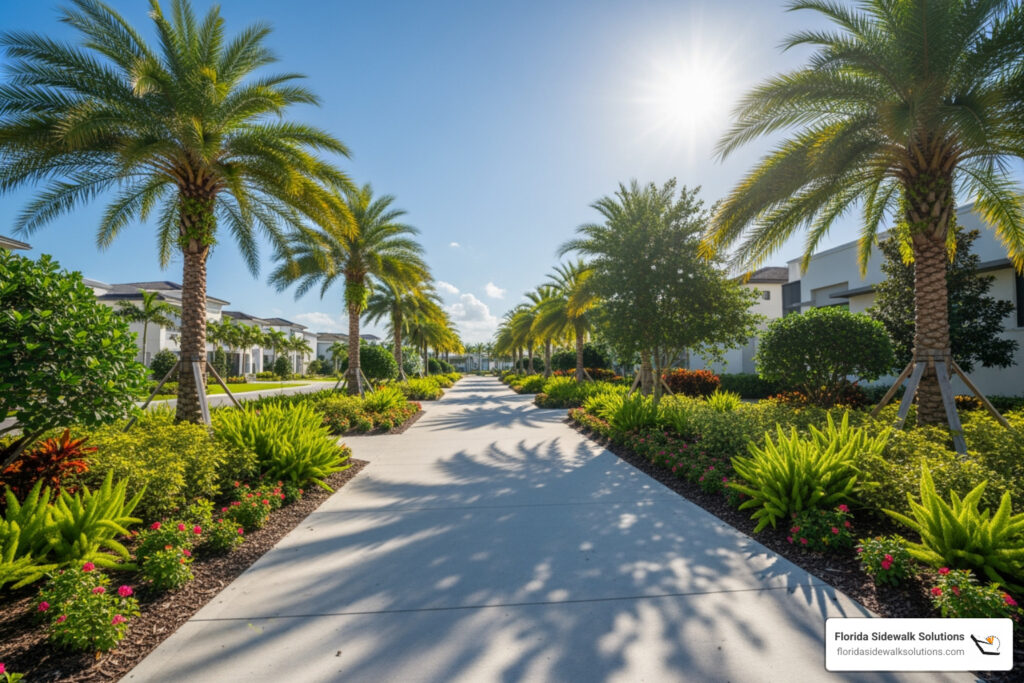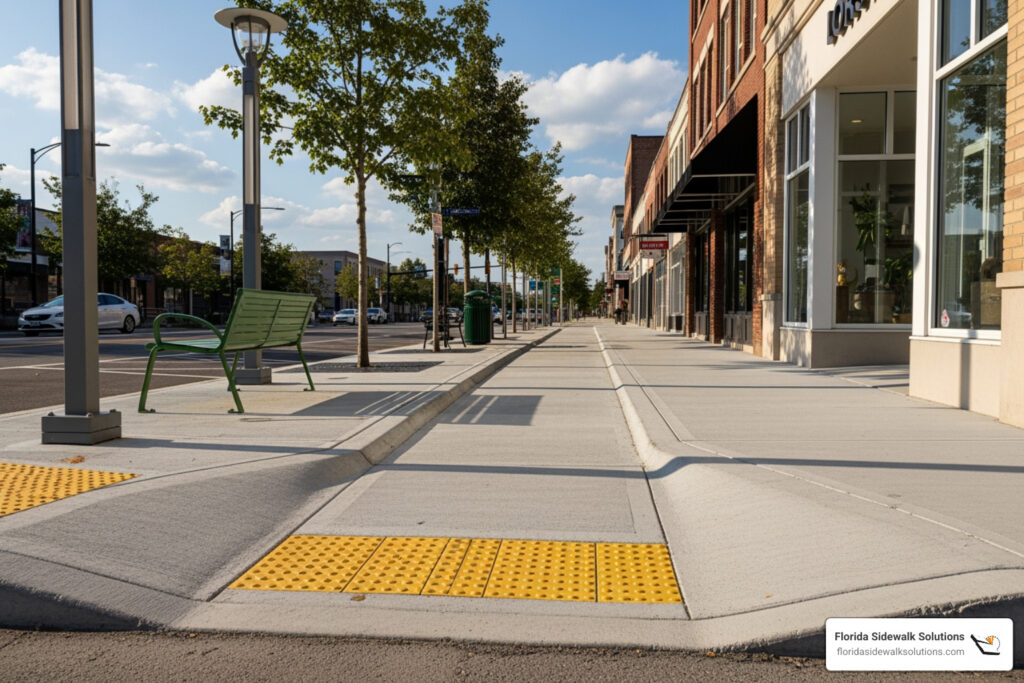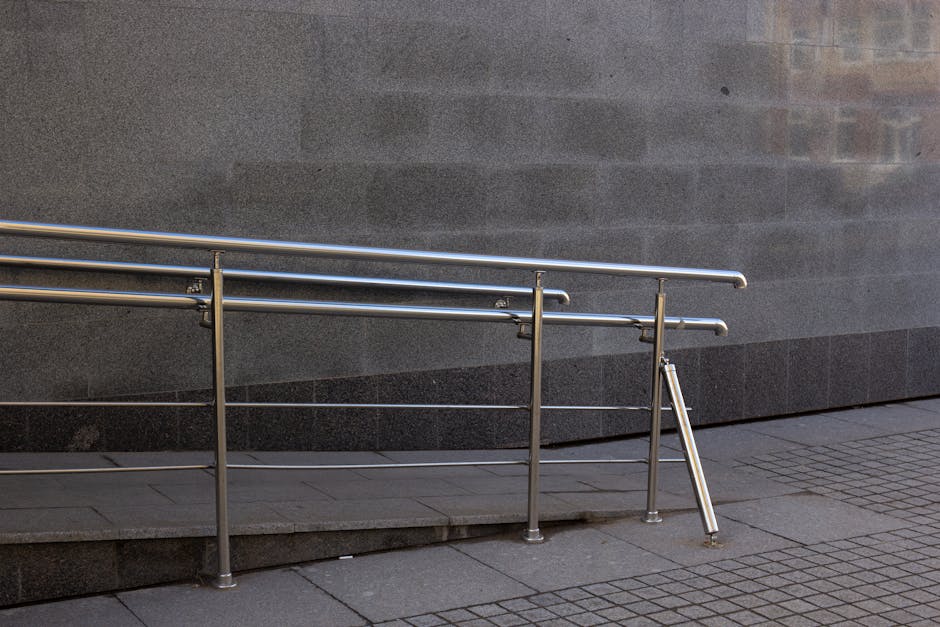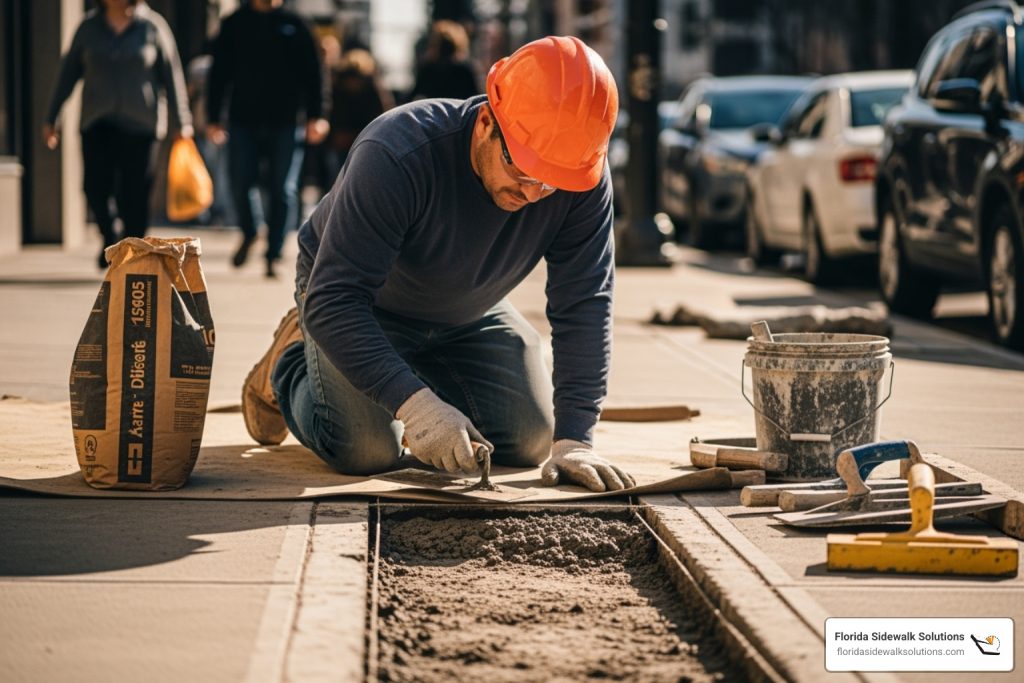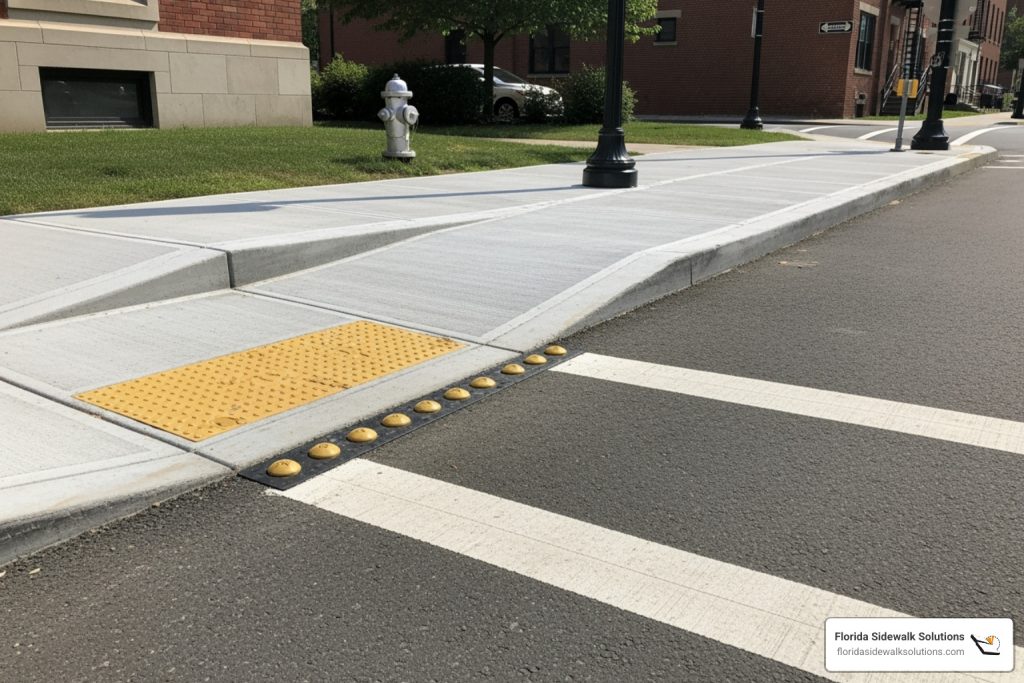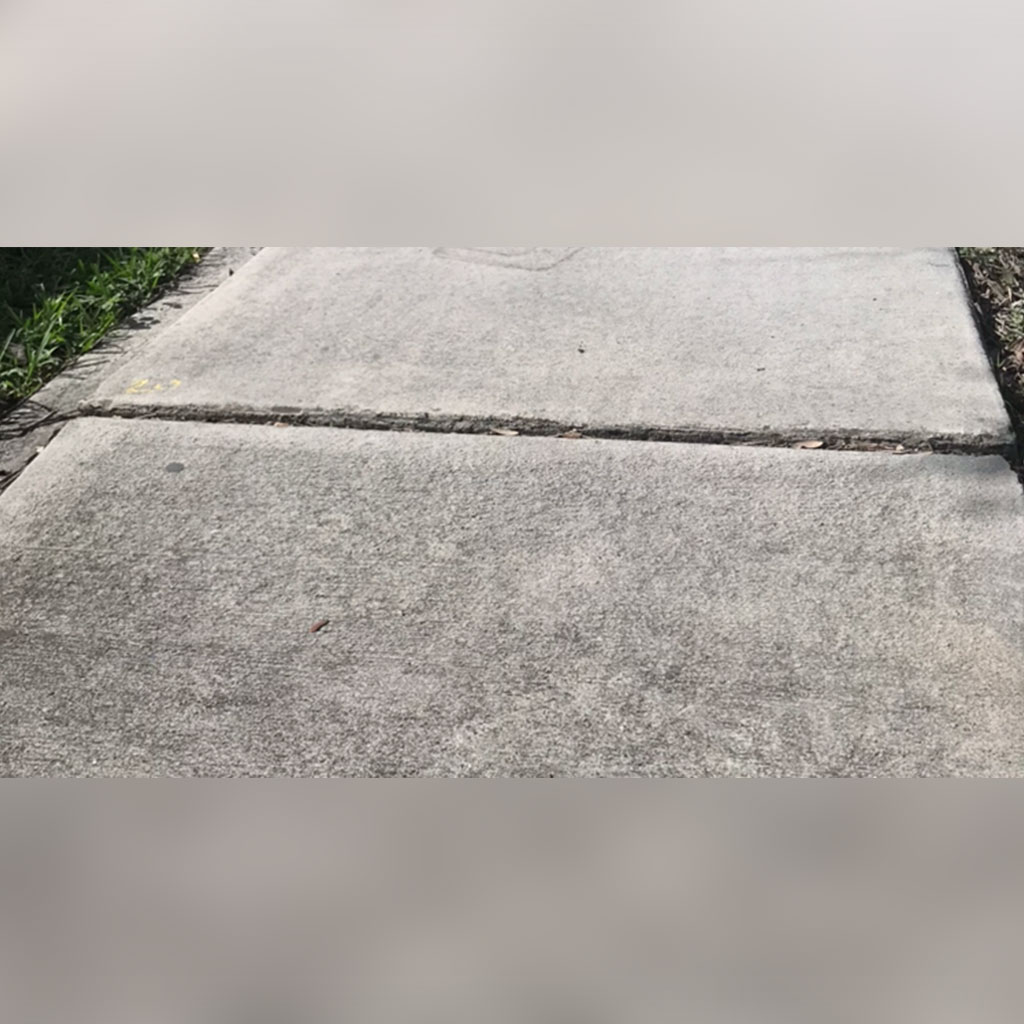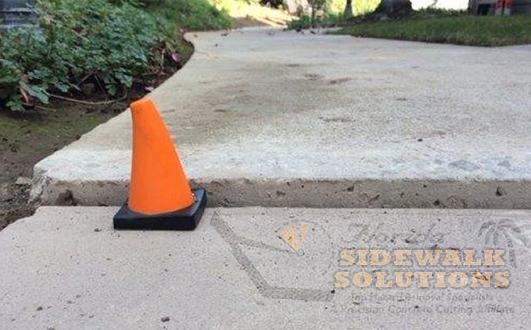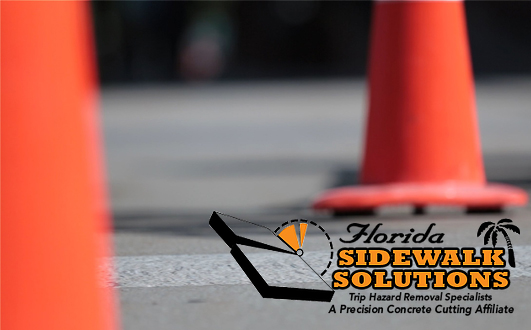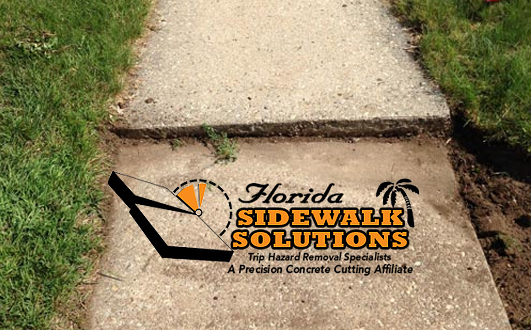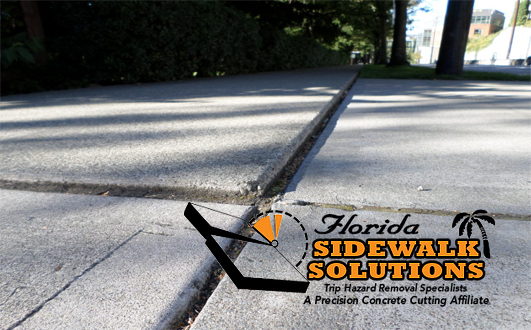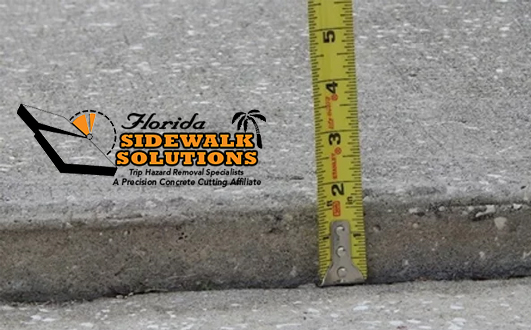ADA Compliance, What Is It?
You might be wondering, what is ADA compliance? The ADA stands for Americans with Disabilities Act, and as you might have guessed, being compliant with their standards means making sure environments, facilities, and certain other resources are accessible to individuals with disabilities. Examples of who and what is usually enforced to adhere to these standards are places of public accommodation, commercial facilities, and state and local government facilities.
Sidewalks can pose a challenge and even be dangerous for people who use wheelchairs or crutches, but they are one of the most common pieces of transportation infrastructure. This is why the ADA has standards to guide those constructing sidewalks in a safe and accessible manner. Amongst these standards are the ADA compliance width requirements that make sidewalks accessible for individuals bound by wheelchair. The minimum width for an ADA-compliant sidewalk is 36 inches, though they can be made wider. If sidewalks are less than 60 inches across, passing spaces must be constructed at set intervals. These passing spaces must measure at least 60 inches on all sides and must be located at least every 200 feet. Not only that, but the texture matters as well. It has to be slip-resistant, firm, and stable. So the way you finish the concrete is just as crucial than cutting to the appropriate length and width. Additionally, a sidewalk must have a slope of less than a ratio of 1:12 (meaning that for every inch of vertical rise there must be 12 horizontal inches).
If you are constructing a sidewalk located near obstructions, such as telephone poles, traffic signal cabinets or other utilities and infrastructure, that’s alright but according to ADA compliance: the sidewalk must be constructed to allow the minimum width requirement of 36 inches between the edge, and any obstruction of the edge of the sidewalk.
When dealing with new construction or updating existing structures on your property, you want to make sure that you keep all this in mind. Our procedures make it so you can keep the existing sidewalk while also repairing any trip hazards you may have such as holes, cracks, or uneven paving. As opposed to the commonly used grinder, we have the advantage of using cutters that reach edges and are able to cut more precisely where we need to.
Florida Sidewalk Solutions is the team you need to make your sidewalk meet ADA compliance. We are trip hazard removal specialists, using patented technology to completely remove obstructions from uneven sidewalks, concrete walkways, and handicap access ramps. Call us today at 954-514-7218.
Related Post: Remove Trip Hazards for ADA Compliance
Find us on: Facebook | LinkedIn | Yelp

